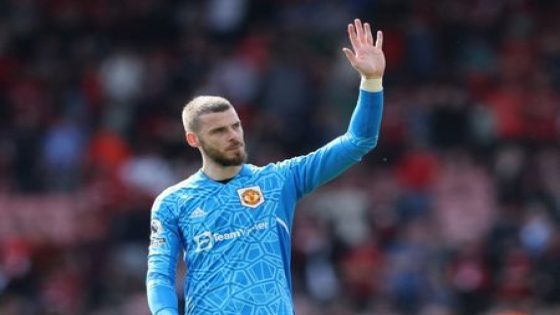You could call it a passing of the torch.
But, really, what the Canadian women’s basketball team did at the Olympics was more of a flameout.
Visions of a first-ever podium appearance went up in smoke on Sunday after a 79-70 loss to Nigeria in Lille, France. Canada finished the group stage 0-3 and, for the second straight Olympics, will not reach the knockout round.
“Disappointing,” guard Shay Colley told reporters in Paris. “We didn’t reach our goal even to get to [the knockout round], so it’s very disappointing. We’ve just got to look to the future. We’re a young group.”
Those around Canada Basketball have often pointed to Los Angeles 2028 as a more realistic medal opportunity than these Olympics.
With Canada up four points at halftime and needing a 10-point victory to keep its Olympic hopes alive, head coach Victor Lapena benched veterans Natalie Achonwa and Kia Nurse in favour of 18-year-old Syla Swords and 22-year-old Aaliyah Edwards.
It did not go well, as Canada went on to lose the quarter 23-5, fully extinguishing any hopes of advancing.
WATCH | Canada goes winless after loss to Nigeria:
Canada falls to Nigeria 79-70 and is eliminated from the women’s basketball tournament at the Olympic Games Paris 2024. The Candians dropped all three of their preliminary round matchups.
Still, the move offered a window into the team’s thought process for these Games — an opportunity for its youngest players to gain valuable experience.
Before these Games even began, Lapena signed an extension through the 2026 World Cup, which will be held in Germany.
Earlier this summer, Canada won silver in both the under-17 and under-18 world championships. Meanwhile, teens Swords and Cassandre Prosper have already graduated to the senior team, and both received meaningful minutes during the Olympic tournament.
“Have you seen our younger teams? Have you seen those that are coming up next? Be afraid,” Achonwa said.
Turning the page
You can see the idea. In four years, Swords and Prosper could be in the WNBA, armed with international exposure from Paris and, potentially, the World Cup.
“I’m such a Syla Swords fan and to see how she’s evolved in the past two years alone has been amazing for her game and can’t wait to see what she does in college [at Michigan],” Achonwa said.
This early time together may be especially important given the lack of opportunities the full team has on a regular basis to play and practice together.
Current WNBAers Carleton and Nurse only joined the squad a week before the Olympics, with Laeticia Amihere arriving a few days before.
“When the rest of the players are around this talent, it’s even easier for them to play basketball,” Lapena said during training camp ahead of the Olympics. “Don’t get me wrong, the guys here with us are doing tremendous work. … But of course we miss our people, our great players, our stars.”
WATCH | Canadian women’s suffers close loss to Australia:
Australia defeats Canada 70-65 in women’s basketball tournament group play at the Olympic Games Paris 2024. The Canadians are on the brink of elimination from the knockout round.
Moving into the next cycle, Carleton and Nurse should also inherit the leadership role from Achonwa.
Carleton, in particular, always seems to step up when she plays for Canada. In the WNBA, the guard has settled into a near 30-minute per game role with a Minnesota Lynx team that leads the Western Conference.
Nurse, on the other hand, has often struggled as the top option with Team Canada. In France, she scored just 23 points across three games while making a paltry 21.9 per cent of her field-goal attempts.
More and more, it seems her best role is as an off-ball shooter who can attack closeouts. If the likes of Edwards, who’s having a strong rookie season in the WNBA, along with Swords and Prosper, develop as Canada Basketball hopes, that’s exactly the role Nurse should be able to play in Los Angeles.
There are also some promising players coming through the age-group ranks such as Toronto’s Toby Fournier, who’s headed to play at Duke, and Swords’ sister Savannah, who played on a prep team with Syla this past season.
For now, though, it’s disappointment for a Canadian team that was ranked fifth by FIBA entering these Olympics.
“You have to play your best. You’re at the Olympics. Every country is going to come with a lot of energy, a lot of grit, a lot of physicality, so you can’t be soft. You gotta really hone in on the defensive end and play Canada basketball,” Colley said.
In this case, however, Canada basketball proved quite sloppy, with turnovers in particular causing the team trouble in each of its three losses.
The giveaways led to some ghastly dry spells — in addition to Sunday’s third quarter, Canada was outscored 23-2 by France in the second frame of the opener, a game it eventually lost by that same margin.
Lapena said then that his Canadian team was overcomplicating things.
“Just to remind them of the basics, the things that we have to perfect to be in the game,” he said. “Back to basics.”
It’s a lesson the team was unable to heed in France.
Now, it’ll be in the hands of the next generation.
Source Agencies






